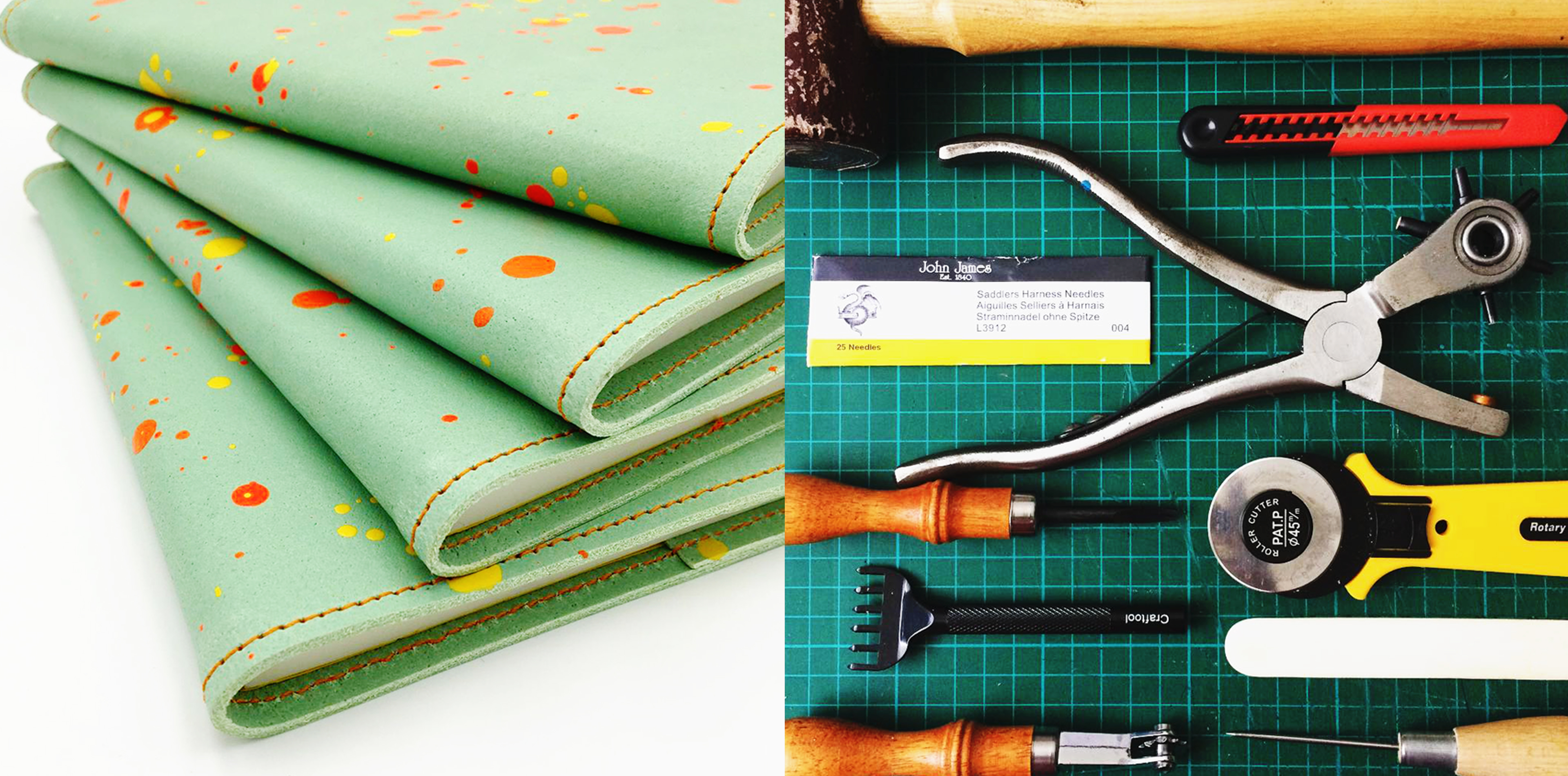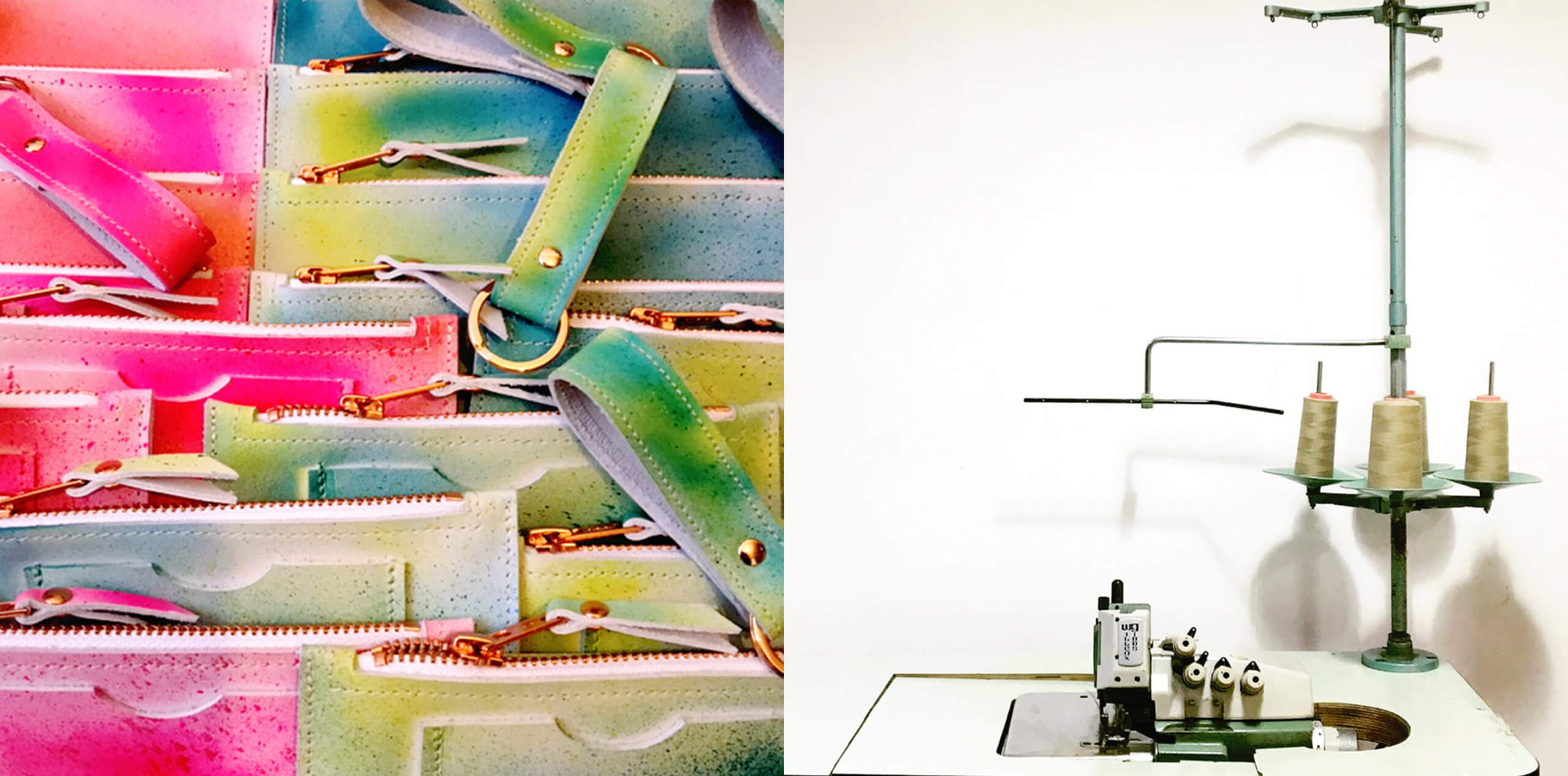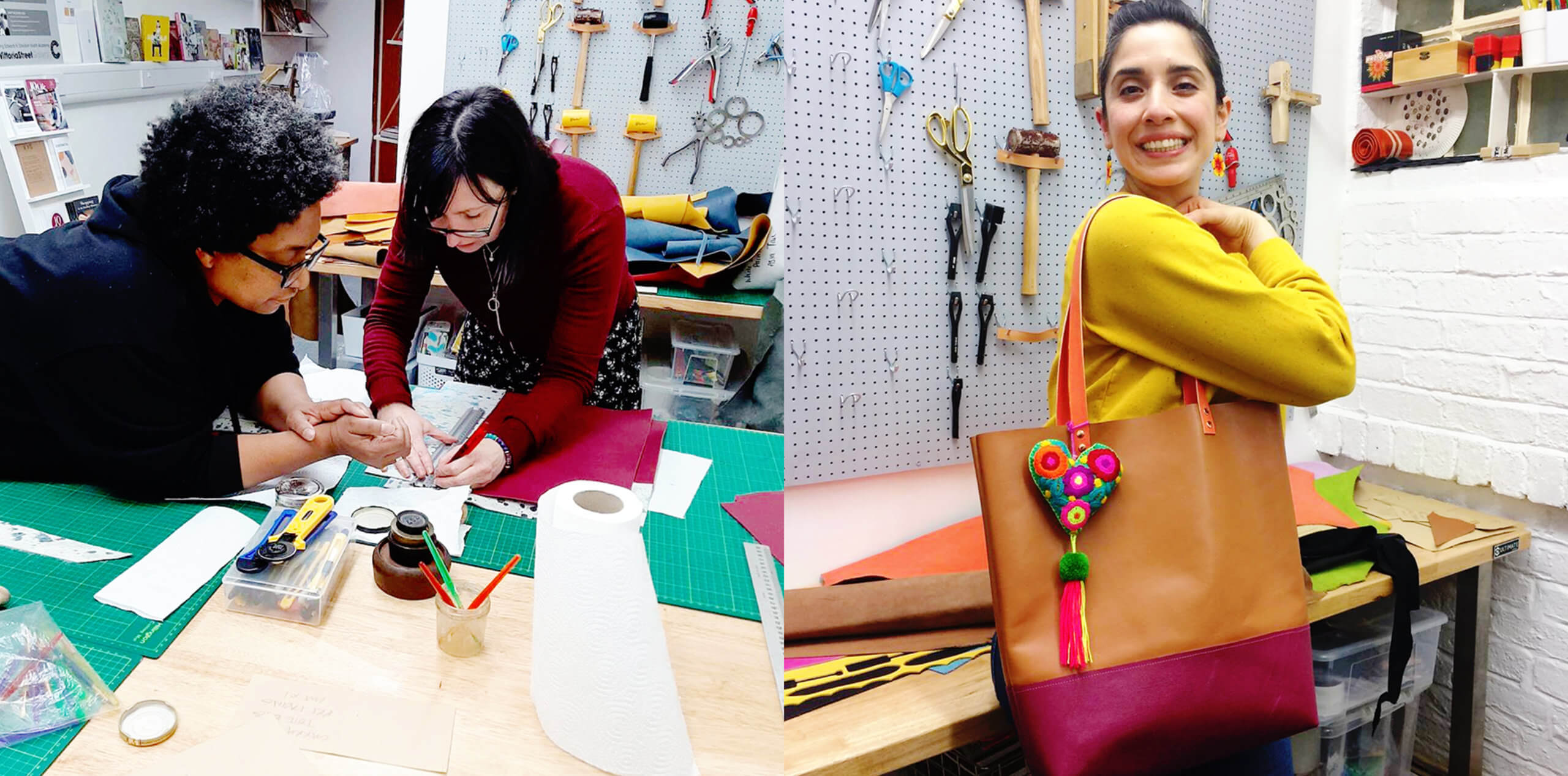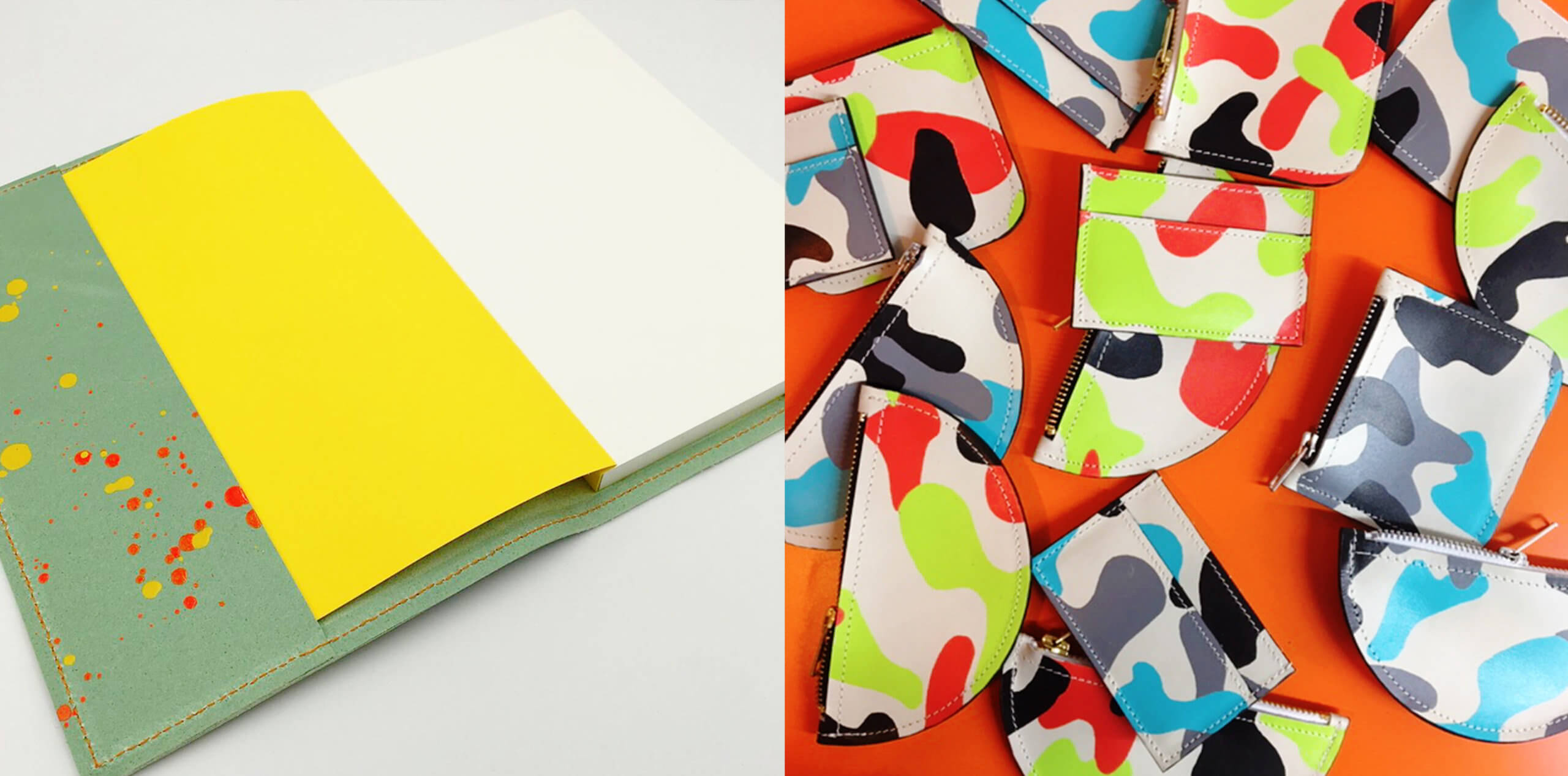Designer-maker Deborette Clarke discovered her love for leather craft whilst studying fashion and textiles, inspired by the durability and versatility of the material. After a stint working in fashion and interior design, she began her career as a maker and trained as a teacher. A self-confessed life-long learner, Deborette spent seventeen years teaching Art and Design and Design and Technology in secondary schools before setting up her own studio, B18 Leather, in 2017 and continuing to teach part-time. Specialising in beautiful hand-crafted small leather goods and based in Birmingham’s Jewellery Quarter, B18 was “born from a desire to experiment with a pre-owned leather sewing machine.”
Deborette decided to combine her teaching and making experience by setting up Deborette Creative in 2015, which runs creative workshops in making leather based products for people of all ages. Having run craft workshops at Walsall Leather Museum, the Black Country Living Museum and at events associated with the Quarter Masters Collective, Deborette’s workshops attract participants from across the Midlands (UK) and beyond.
Whilst working in education Deborette became concerned with the demise of creative subjects at secondary school level and recently founded Project 18 in collaboration with fellow educator Garfield Meriedith. Project 18 is a social enterprise project that works with young people outside of the national curriculum giving them the experience of a studio environment and an opportunity to design, make and sell. This very worthwhile project is offered to 16-18 year olds free of charge and is supported by public and private funding as well as the sale of items made during each cycle. Deborette believes it’s really important to share her skills, especially with young people: “it helps them to build their confidence, develop team working skills and learn practical making skills. I’m passionate about giving them opportunities to be creative and showing them that there are many career paths they can take.”

We caught up with Deborette to find out more about how she got to where she is today and her thoughts on equality and diversity in the design industry.
How did you become interested in working as a designer?
As a child, I had always enjoyed designing and making clothes for my dolls and I entered design competitions as a teenager. I decided at school that I wanted to study Art and Design and went to Art College at 16. Whilst studying on my Art and Design course I knew I wanted to be a fashion or jewellery designer. In the second year of the course, I decided that I wanted to follow the fashion route.
Describe how you got to where you are now.
When I left Uni, I worked in the industry in a variety of roles, but unfortunately not in a design capacity. There were limited positions available then. At one point I toyed with going to New York but I was happy living in London and enjoyed all that London had to offer at the time. In my head I wasn’t ready for New York. I later started working self-employed as a designer-maker in London, while also working in a variety of part-time jobs. I trained to teach at secondary level and started teaching Art and Design at a south London comprehensive. On relocating back to Birmingham I continued to teach but also started working as a maker once I got my studio/workshop in the Jewellery Quarter.
How have you developed throughout your career?
I’m totally changed from where I was after l completing my degree course. I then specialised in men’s wear while now I design and make small leather goods. I’ve studied jewellery making at the School of Jewellery in the Jewellery Quarter and am currently working on a textiles-based lifestyle brand.
What do you enjoy most about being a designer?
Freedom, especially when you are self-employed. You can design products for yourself and customers or clients. There is nothing better than seeing someone using or wearing a product that you have designed and or made. I like the journey from concept to final execution.
How has being a woman impacted your career?
When I left Uni, I applied for a few menswear roles and thought I was in a good place to get recruited. My portfolio was good and I had positive comments from the recruitment agencies. I was never employed as a menswear designer, which of course knocked my confidence. I remember much later speaking to the PR people of a design company that I had applied to work for, who let me into a little secret, namely that they decided not to hire me because ‘what did I know about designing men’s clothes’.
Do you think there is equality and diversity across the design industry today?
Definitely not. My brother started working for a publishing house many years ago and he was their first non-white employee as a graphic designer. He was also the youngest, in his late twenties. It was a long time before he saw another person of colour in a creative role at said company. Although it has been getting better recently, the fashion industry is notoriously bad on the diversity and equality front.
If you could start your career again what would tell your younger self?
Probably to work overseas. Go work for a design agency or studio in a really cool city.
Do you have any words of advice for women considering a career in design today?
Be prepared to work long hours, don’t be a pushover, learn to say NO.
Where do you see yourself in 5 years’ time?
Absolutely no idea! Just kidding – working with a variety of other creatives.
Which female designer/artist/thinker has most inspired you?
I tend to like musicians who are really inspirational like Grace Jones and Missy Elliot. They have broken gender stereotypes and are ground-breaking artists who have left great legacies.
Can you recommend 3 other female designers, illustrators, makers, animators or creatives etc. currently working in the industry who you find inspiring!
I have liked the work of Rei Kawakubo since I was student. I also like Ruth E Carter and my friend Anjuli McKenna, who is an illustrator.
Follow:
See more:



